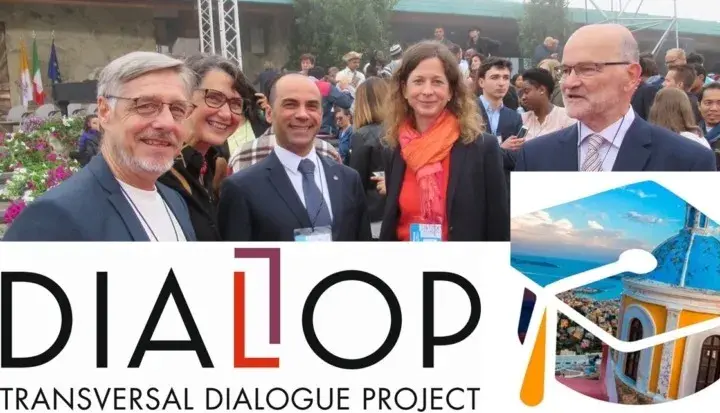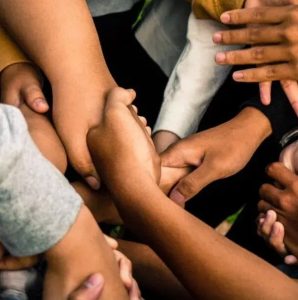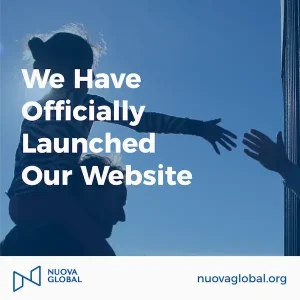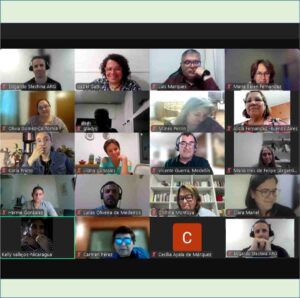
28.06.2022
A cross-party dialogue in full mutual respect. Socialists, Communists and Christians can meet and achieve together something that until a few years ago seemed impossible: a common social ethics that can be proposed as a new narrative for a Europe in search of identity. A demonstrates this is Dialop, an initiative born in 2014 from the meeting between Pope Francis Alexis Tsipras, then president of the Syriza party and then Greek prime minister since 2015, and Walter Maier Austrian communist leader. The joint document was presented today in Rome.
By Luca M. Possati (L’Osservatore Romano)
The Focolare Movement and other organisations have joined the project over the years, including Transform Europe, universities and NGOs. Dialop is a concrete response to the message launched by Pope Francis in September 2019 on the need for “a broad educational alliance” in order to “form mature people, capable of overcoming fragmentations and oppositions and rebuilding the fabric of relationships for a more fraternal humanity”. Tuesday 28 June saw the presentation of a joint document, born from the project experience, was presented at the Sala Cristallo (Hotel Nazionale) in Piazza Montecitorio in Rome.
“It has been a long journey made mainly by Christians linked to the Focolare Movement, but not only, and groups of Greek, Austrian, German and Italian communists. Meetings were held in which, in the maximum freedom and mutual respect, they tried to address together issues of social ethics that seemed to be common ground. It is a journey, which continues; today’s meeting is not a point of arrival,’ says journalist Michele Zanzucchi, professor at the Sophia University Institute (IUS), one of the promoters of Dialop.
Among the main achievements of the initiative is the Summer School that took place in September 2018 on the Greek island of Syros, hosted by the University of the Aegean Sea, supported by the IUS and subsidised by the Greek Parliament. Over fifty professors, students and activists took up the invitation expressed by the title Europe as a common: let’s think about it!
“The main thing is the dialogue itself,” says Zanzucchi, “that is, being able to dialogue and respect each other deeply in their convictions. It is not a dialogue between believers and non-believers. Everyone believes in something. It is a dialogue between different believers”.
At the centre, the beating heart of the project, is the value and possibility of the so-called “differentiated consensus” based on “qualified dissent”. In order to truly engage in dialogue, one must first know and understand each other. It is necessary to know the foundations on which the interlocutor in front of us is based. To avoid apparent consensus, shallow, superficial and false misunderstandings, we must start by fielding disagreements, which must be “qualified”, i.e. clear, confident, comprehensible, and well founded. “There are situations where there is no agreement, because there clearly cannot be. The dialogue is more important than agreement on individual issues. Even if an agreement is never reached, the made remains and allows one to look at the other, at the one who is different from oneself, with the optimism of mutual trust,’ says Zanzucchi.
The document being presented today ‘traces the history of the antagonisms between Christians and socialists, and then takes stock of the point we have arrived at, that is, of the dialogue we are conducting made up of differentiated consensus and qualified dissent,’ explains Luisa Sello of the Focolare Movement. “The aim is a common social ethic, in which the social doctrine of the Church can be combined with Marxist criticism”.
The future of the project is open: “We are now trying to strengthen the initiative by including young post-doctoral students”. “It has to be said that this left that is dialoguing now is no longer the left that we encountered 20 years ago. There has been a change of era and mentality”.
The Dialop initiative involves an international network of universities (Uned of Madrid, University of Coimbra, Sophia University Institute, University of the Aegean, Rotterdam School of Business, HPH Edith Stein in Innsbruck, and NGOs (Transform Europe, Rosa Luxemburg Foundation and New Humanity (of which NetOne is an associate organization).
To read more, click HERE (article in Italian)








